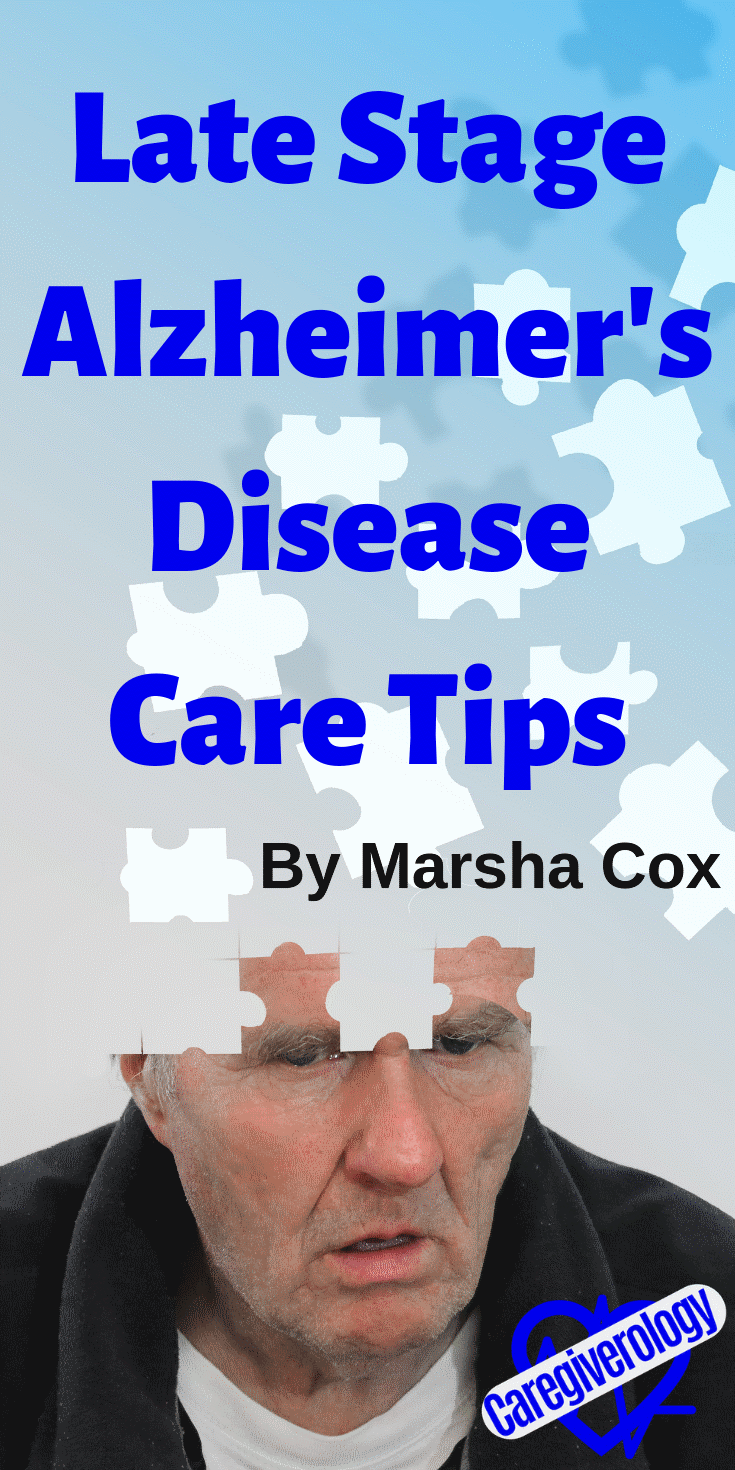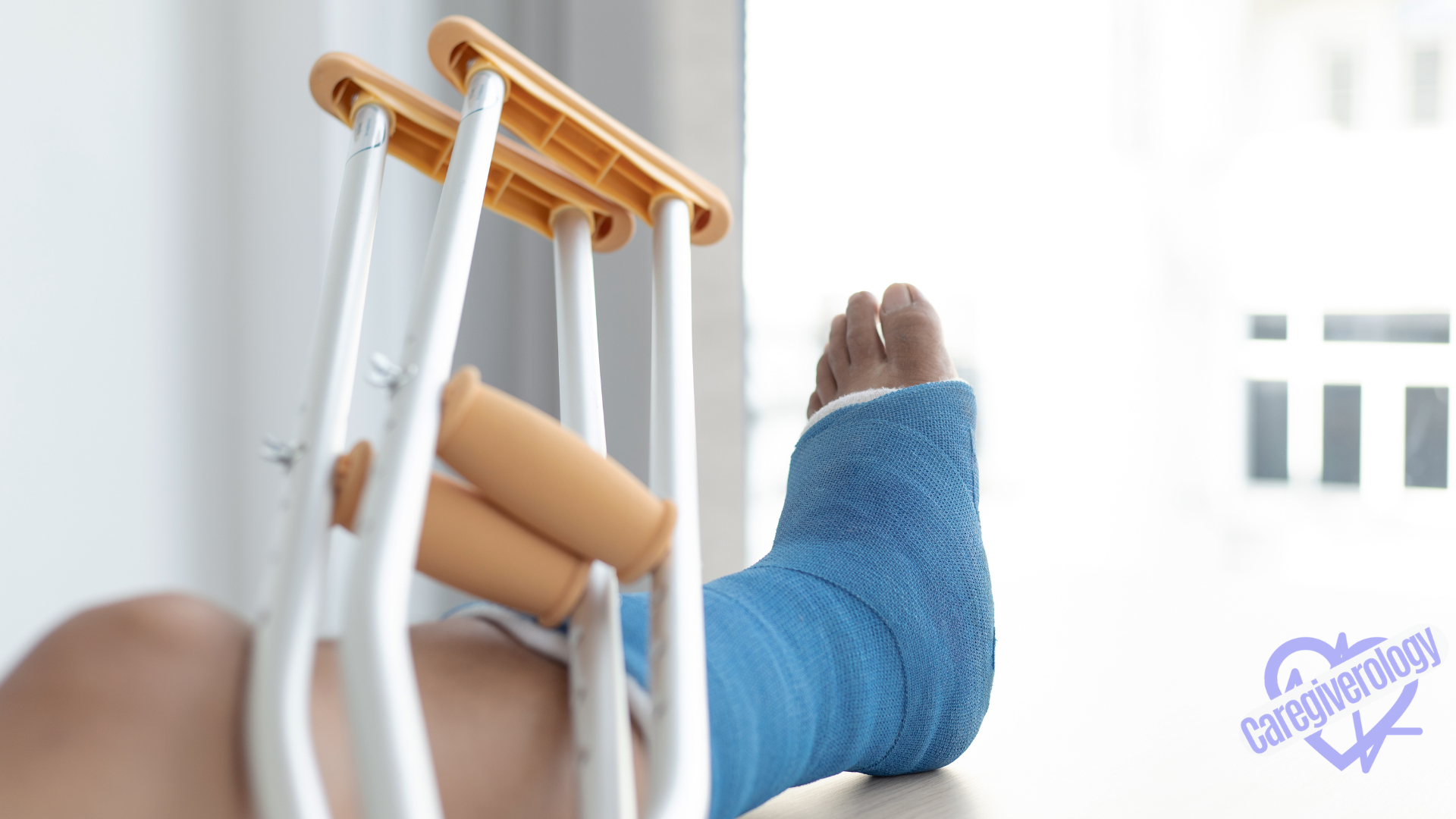Late Stage Alzheimer's Disease Care Tips
If you are struggling to care for a loved one that has been diagnosed with Alzheimer's, you are not alone. There are over five million Americans currently living with this disease. Surprisingly, it is the fifth leading cause of death for people 65 and older. Whether the care is being given at home or in a facility, it can be a real struggle. Your role as a caregiver should be to focus on their quality of life and dignity. Here are some tips I've learned over many years of caring for these types of patients.
Communication Aggression Calming Nutrition ADL Hygiene Points Thoughts
Communication can be Difficult
These patients may completely lose their ability to communicate which makes even the simplest of things frustrating for them, as well as you, their caregiver. They may completely lose their ability to express their own personal needs.
Their world is experienced through their senses on a more primitive level than usual. So when caring for them, they often respond better through their senses of touch, sound, sight, taste, and smell rather than communication through language.
Losing their ability to communicate makes it difficult to know when they are in pain. In these cases, you have to look for signs of pain. You can do this by looking at their facial expressions, or if they are making grunting sounds, or simply observe their body for redness and swelling. Agitation is also often a good sign they are in pain. If they are having trouble sleeping at night, pain just might be the reason.
Aggression is Common
During late stage alzheimer’s, patients may become restless or aggressive, especially towards their caregiver because they often do not understand what’s going on around them. They may even suffer from more severe personality and behavior changes such as delusions and paranoia. Just remember that this is not who they are, but a part of their disease.
Some commonly get what is called “sundowners“. This is when they get increasingly agitated or sometimes even have a complete personality change as the evening comes and the sun starts to go down. This makes things like bed alarms really important at nighttime.
Calming Measures to Try
In my experience, there have been a few things that help patients relax when they get upset or anxious such as:
- Looking at old photos with them. I found that this would often make them happy by reliving some of their older and more cherished memories.
- Listening to their favorite music may also help bring back fond memories of their past.
- For the women, I would sometimes paint their fingernails but let them pick out the color so they felt more involved in the experience.
- Increasing the light in the room to make it brighter, including nightlights at night, can help with orientation.
- Always reassure them that everything will be alright. Even when they don’t understand what you are saying, they will often respond positively to affection and being talked to in a calm and soothing voice.
- Some often respond well to animals. Allow them to pet a cat or a dog if they are friendly.
Nutrition and Aspiration Precautions
Helping alzheimer's patients eat is often very exhausting, but there are a few things you can do to make it more doable. I would always cut their food up into small pieces which makes it easier for them to chew and swallow. Giving them soft foods is another thing you can do and is actually often a prescribed diet by a physician in hospitals and similar facilities. Soft diet foods include things like ice cream, yogurt, applesauce, and gelatin.
There will be times when they just don’t have an appetite and will refuse to eat no matter how badly they need the nutrition. In that case I would offer them a nutritional shake, which comes in a variety of tasty flavors. The good thing about these are, not only do they taste good, they are chock full of vitamins and minerals needed for proper nutrition. If this is all they are willing to consume, it's better than nothing at all.
Many patients experience difficulty swallowing which also makes it challenging for them to receive proper nutrition. If they are having trouble with aspirating, also known as choking, while drinking liquids, you can add thickener to their drinks to make it slide down their throat easier. If you are a caregiver at home, you can buy the thickener in a canister online, but if you work in a nursing home or hospital, they will more than likely provide this.
ADLs, Mobility, and Bed Sore Prevention
As the disease progresses they become more and more dependent on others for their activities of daily living (ADL) such as bathing, dressing, and eating. They will often begin to lose the ability to perform basic physical actions, like walking or sitting up on their own, which causes them to be a high fall risk. To keep their joints from becoming stiff, you can perform range of motion exercises several times per day.
They may begin to spend most of their time in bed or become completely bedridden. In these cases, you will need a special mattress to aide in reducing bed sores, also known as pressure ulcers. You should also turn them every two hours while they are in bed. Even while they are sitting up in a chair, it is a good idea to reposition them every two hours or assist them back to their bed to lay down. A turn clock can aide in keeping track of this.
I always turned them and propped a pillow behind their back to keep them on their side. I would also put a pillow between their legs to prevent their knees and ankles from rubbing together which are also common areas where bed sores can form.
While turning them onto their side, you should check for reddened areas which is usually the first sign of a pressure ulcer. These are the areas that are prone to bedsores: heels of the feet, hips, buttocks, shoulders, back, and elbows. I would also apply lotion to their back whenever I turn them. This promotes optimal blood flow and helps moisten dry, cracked skin.
Hygiene and Infection Tips
There are a lot of hygiene related problems associated with late stage alzheimer’s that you often have to prepare for when caring for the patient. Proper hygiene should be practiced by you as well as the patient. The later the stage, the more difficult the care becomes.
It’s much easier for them to get infections such as pneumonia and urinary tract infections (UTI) which can complicate their care even more. These issues often causes them to be hospitalized which throws additional problems in the mix.
Another problem many patients face is incontinence which means loss of control of bowel and bladder function. To combat this, they will need to either wear disposable adult briefs or have incontinence pads placed underneath them while in bed. They should be changed or toileted every two hours to prevent skin breakdown.
Main Points to Remember
The main points to remember if you are caring for someone with alzheimer’s are as follows:
- Keep things simple for them
- Have a daily routine for them
- Reassure them that they are safe and you are there to help
- Focus on their feelings rather than on the words they say
- Don’t argue or try to reason with them
- Try not to show your frustration or anger
Final Thoughts and Comments
As an alzheimer's caregiver you will face numerous tests of stamina and problem solving which makes maintaining your emotional and physical fitness a must. This is true not just for you, but also for the person you are caring for. Helping them through these last years of life is a truly difficult journey. The most important thing you can provide for them is respect, dignity, and physical comfort until the end of their life.
Have you ever taken care of a patient with late stage alzheimer's disease? What was the experience like? What tips can you provide to others to help aide them to give better care? Share your thoughts and opinions in the comment section down below.
Thank you Marsha Cox for contributing this article.
Guest Articles Written for Caregiverology
From Late Stage Alzheimer's Disease Care Tips to Home
Recent Articles
-
What to Expect During Post-Operative Recovery at Home - Caregiverology
Apr 08, 25 08:21 PM
Surgery may be over, but the journey to full recovery is just beginning, and for many people, the hardest part happens after they leave the hospital. -
How to Plan for Aging: Financial, Health, and Lifestyle Considerations
Mar 29, 25 12:40 PM
Did you know that 70% of people over 65 will need some form of long-term care? Yet, many delay planning until it’s too late. Aging is inevitable, but how we experience it depends on preparation. -
Speech Disorders: How to Know When It's Time to See a Professional
Mar 27, 25 07:05 AM
When it comes to human interaction, we need to be able to communicate effectively.





New! Comments
Have something to say about what you just read? Leave a comment in the box below.